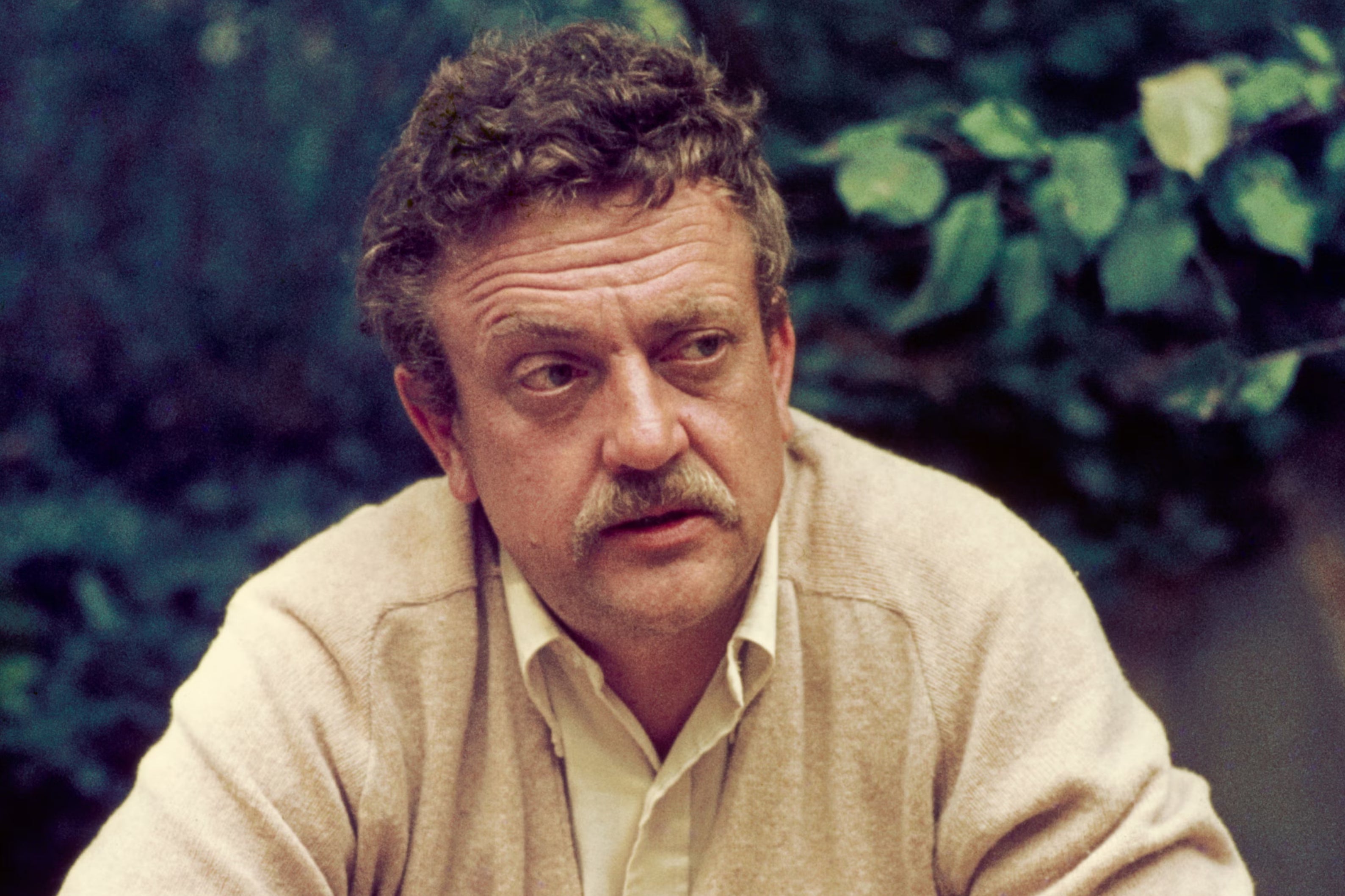Book of a lifetime: Slaughterhouse-Five by Kurt Vonnegut
From The Independent archive: Elanor Dymott is shown the horrors of the Dresden firebombing by a book that travels back and forth through time, through trauma and laughter, into something quite unexpected

According to Ford Madox Ford, a novelist wishing to “get a man in” must capture the gradual making of an acquaintance which happens in real life: a strong impression at the outset, followed by a working backwards and forwards over his past. A first meeting with a gentleman in one’s golf club, Ford notes, is the start of a process which cannot accurately be reflected by working a life chronologically.
For years, I had a jumbled and imprecise awareness of the author of Slaughterhouse-Five. My golf club meeting with Vonnegut came in the form of a newspaper article. By graphs mapped onto a horizontal “Beginning – Entropy” axis and a vertical “Good Fortune – I’ll Fortune” one, he demonstrated classic storylines. Hamlet, he said, when mapped in such a way, is no apparent masterpiece. What makes it recognisable as one, he explained, is the fact that its author tells us the truth.
The timing of my next encounter, Slaughterhouse-Five, was accidental. The novel’s cover turned outwards in a bookshop, a flash of yellow light. I knew it was about the Dresden firebombing. I’d a notion there would be a bunker, and destruction. That the story might read like many stories of war. I was, in short, completely unprepared.
David Mamet says you sell a man the Eiffel Tower not by telling him you’re going to sell him the Eiffel Tower, but by saying you deal in scrap metal and then showing him it. “This is what he’s doing,” I thought, during Vonnegut’s meandering introduction to Billy Pilgrim’s story, which traces his attempts to write about Dresden. “He’ll show me it,” I reassured myself. “Any minute now.” Then, suddenly, there were the words: “LISTEN: BILLY PILGRIM HAS COME UNSTUCK IN TIME.” He’d begun, and his pace suggested there would be no stopping until the final “Poo-tee-weet”.
But there was a momentary halt before the end, and its effect was to make me aware of how completely this writer had lulled me into the sense of contentment that can steal up with fiction, regardless of the horrors described. Shortly after the halfway point, malnourished soldiers, newly arrived in a prison camp, become “sick as volcanoes” after gorging on a welcome feast. Billy hears “an American” wail that he’d excreted everything but his brains and, moments later, reporting that those had come out also. This is when it happened, in the next single-line paragraph: a shuddering jolt, a brutal wrench from fiction into truth. “That was I,” Vonnegut writes of the American, standing next to Billy. “That was the author of this book.”



Join our commenting forum
Join thought-provoking conversations, follow other Independent readers and see their replies
Comments